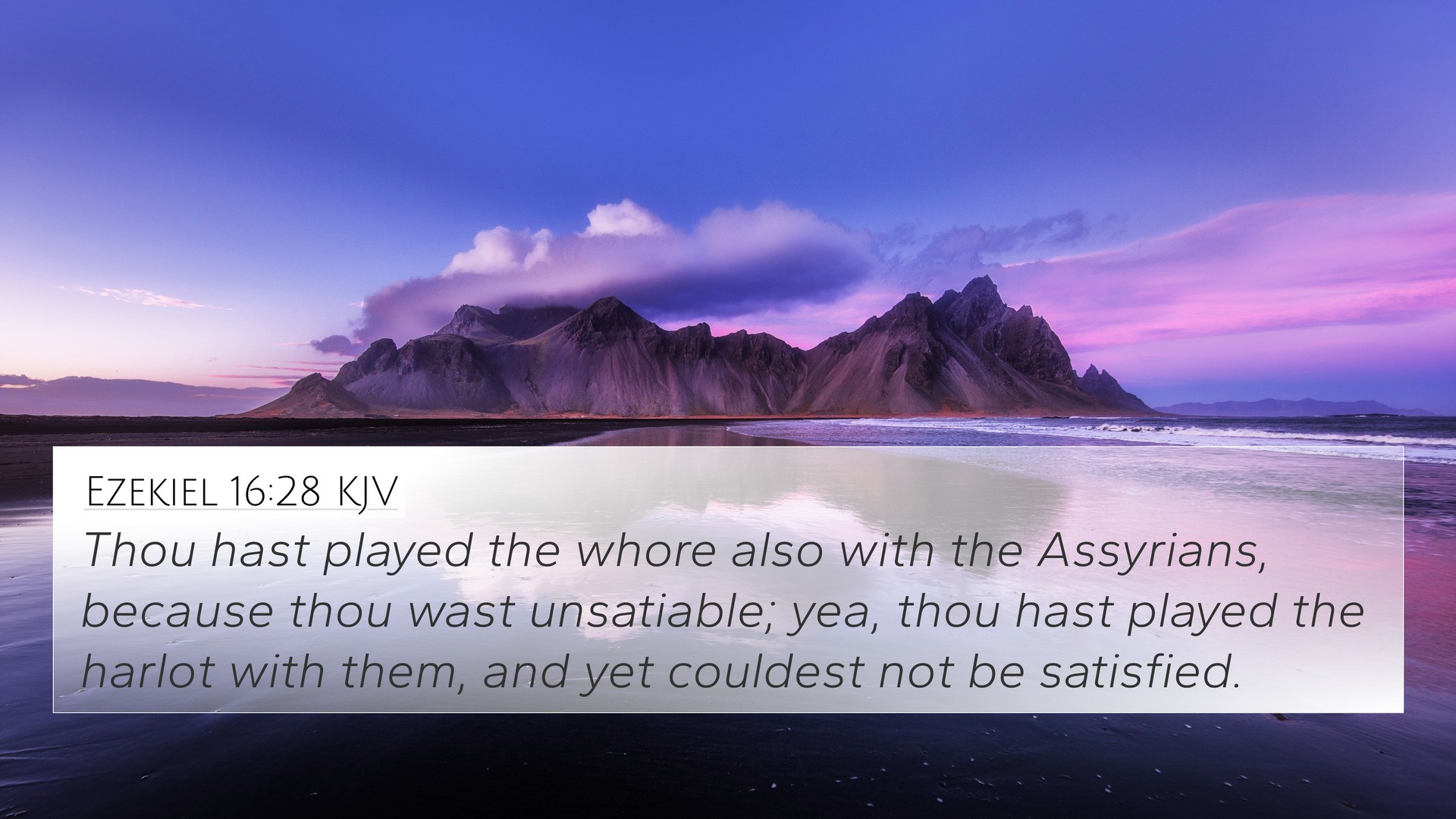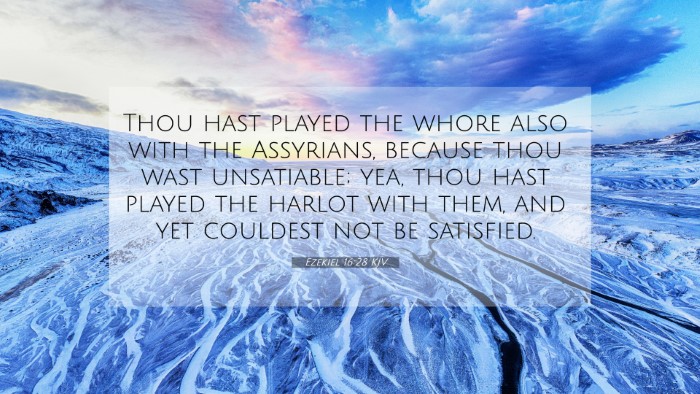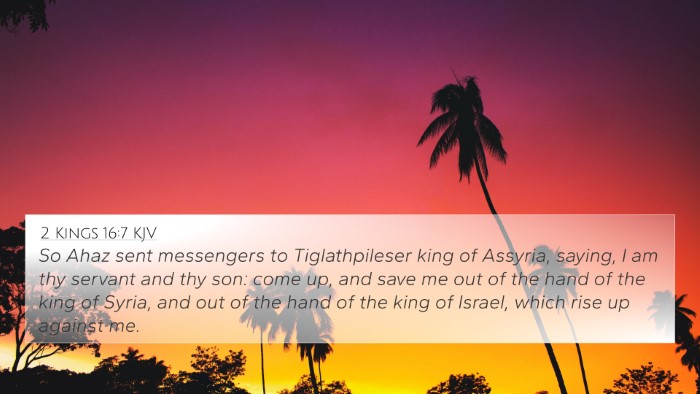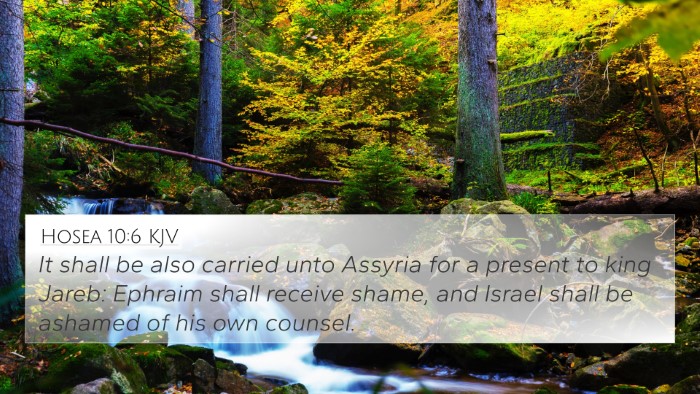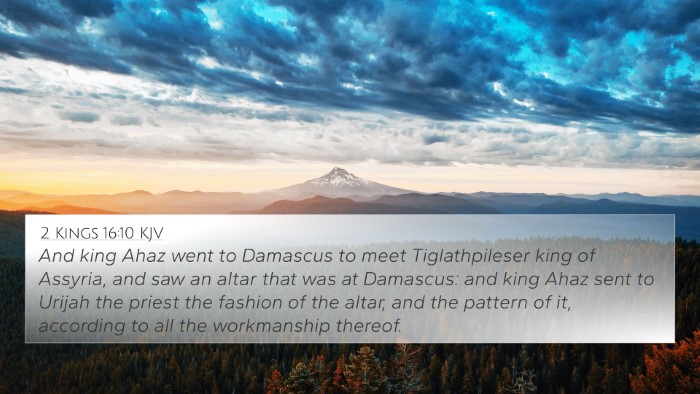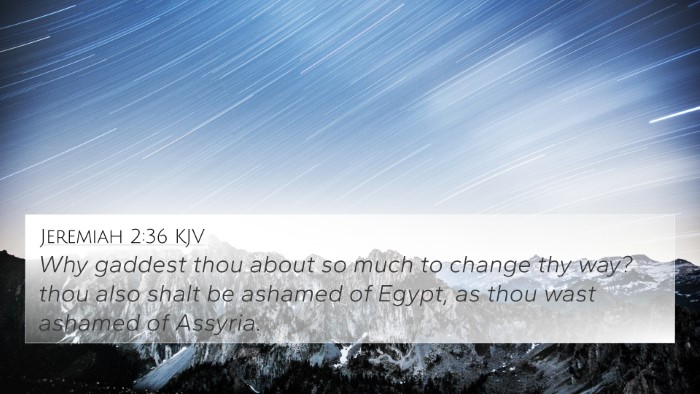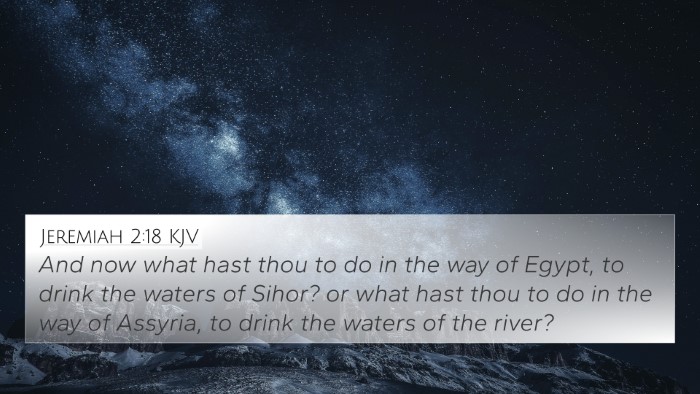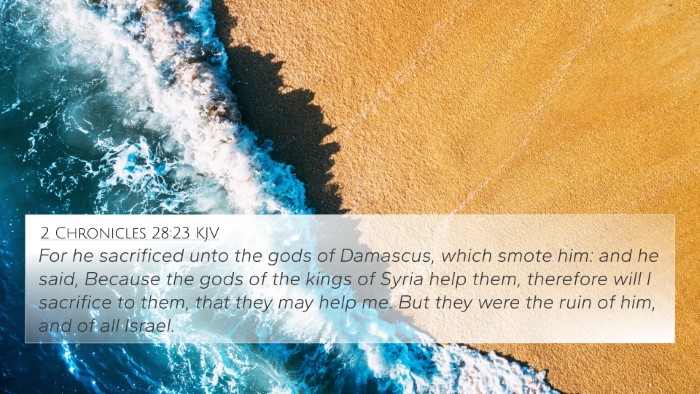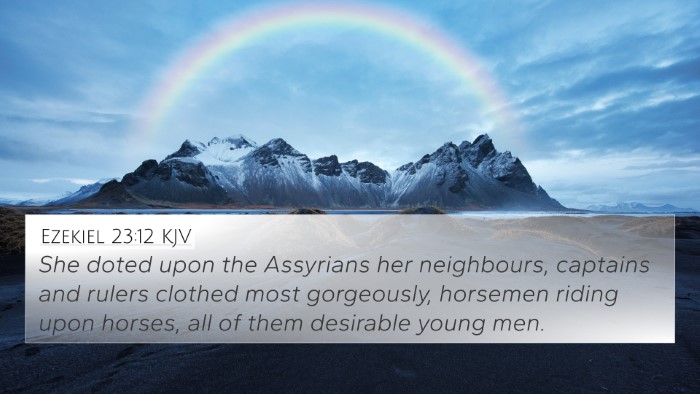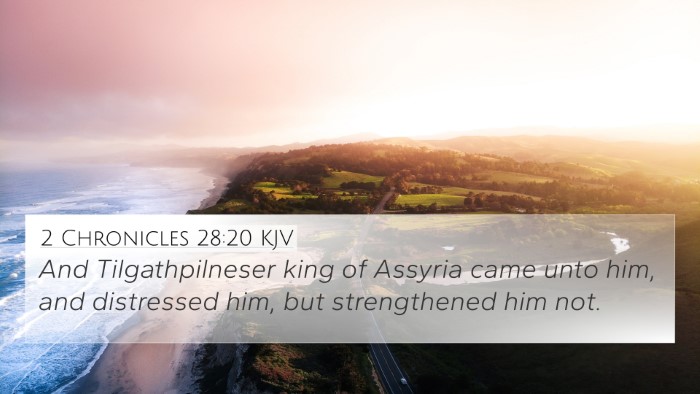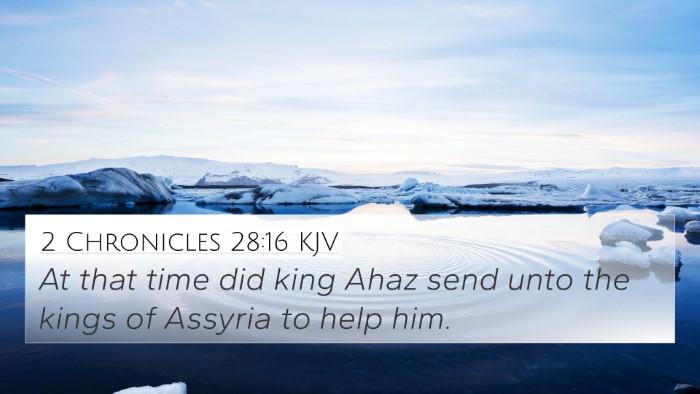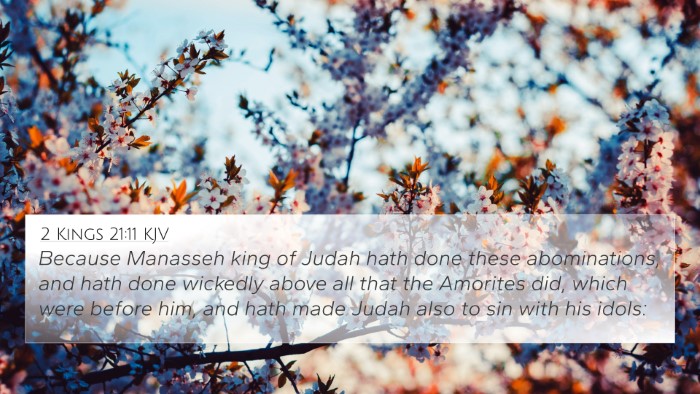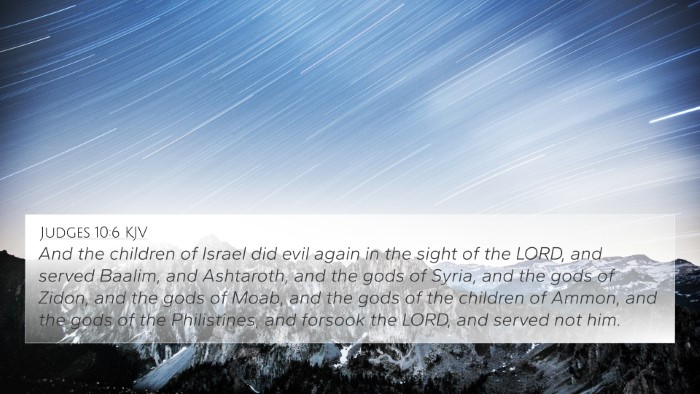Ezekiel 16:28 - Meaning and Interpretation
Ezekiel 16:28 states, "You played the whore with the Assyrians because you were insatiable; yes, you played the whore with them and still weren’t satisfied." This verse highlights the unfaithfulness of Jerusalem, depicted as a woman who has betrayed her husband (God) by pursuing other alliances and desires.
Understanding the Context
The context of this verse is crucial to grasp its full meaning. Ezekiel is addressing the people of Jerusalem, using powerful imagery to convey their spiritual infidelity. In prior chapters, God elucidates His covenant relationship with Israel and contrasts it with Israel's idolatry and reliance on foreign nations.
Commentary Insights
-
Matthew Henry's Commentary:
Henry highlights the theme of spiritual infidelity, clarifying that the people were not satisfied despite their unholy alliances. They continually sought fulfillment outside of God, reflecting human tendency to pursue worldly pleasures that lead to spiritual emptiness.
-
Albert Barnes' Commentary:
Barnes emphasizes the allegorical nature of the text, revealing how God views the actions of His people. He points out that the Assyrians represent temptation and allure that lead Israel away from God. The underlying message is a warning against seeking satisfaction in places that lead to spiritual ruin.
-
Adam Clarke's Commentary:
Clarke dives into the historical background, explaining that the Assyrians were known for their cruel conquests, which illustrates the pitiful state of Jerusalem turning to such a people for aid. He portrays this as a metaphor for Israel's betrayal of God, who had provided for them.
Spiritual Applications
This verse can be applied to modern believers as a reminder of where true satisfaction lies. Just as Jerusalem sought fulfillment in foreign nations, individuals today may be tempted to find security and happiness outside of their relationship with God.
This passage reinforces the importance of faithfulness and reliance on God rather than on fleeting pleasures or alliances.
Cross-References
- Isaiah 30:1-3: Warns against forming alliances with Egypt, likening it to rebellion against God.
- Jeremiah 2:13: Highlights God's accusation against Israel for forsaking Him and seeking satisfaction elsewhere.
- Ezekiel 23:5-10: Illustrates the pursuit of worldly affections through another allegorical narrative.
- Hosea 11:7: Emphasizes God's disappointment in Israel's unreliability and disobedience.
- James 4:4: Equates friendship with the world to enmity against God, resonating with the theme of infidelity.
- Revelation 17:1-2: Describes the great harlot (representing spiritual unfaithfulness) with whom the kings of the earth have committed fornication.
- Psalms 106:39: Reflects on the consequences of Israel's idolatry and unfaithfulness.
- 1 John 2:15: A direct call to avoid loving the world and the things in it which leads to spiritual demise.
- Galatians 5:17: Illustrates the conflict between the desires of the flesh and the spirit, paralleling Israel's struggle.
- Proverbs 21:17: Warns that those who love pleasure will find themselves wanting, stressing the futility of seeking happiness in the worldly.
Thematic Connections
The theme of unfaithfulness appears consistently throughout the Scriptures, creating a rich inter-Biblical dialogue. Notably, the experiences of Israel are reflective of greater biblical themes such as covenant loyalty, the dangers of idolatry, and the quest for true fulfillment in God.
Conclusion
Ezekiel 16:28 serves as a somber reminder of the human heart's tendency to stray from God in pursuit of temporary pleasures. The comprehensive biblical cross-reference materials available help underline the interconnectedness of Scripture and deepen our understanding of God's faithfulness amidst our unfaithfulness. It encourages believers to seek and find their satisfaction wholly in their relationship with God, avoiding the pitfalls of spiritual unfaithfulness.
